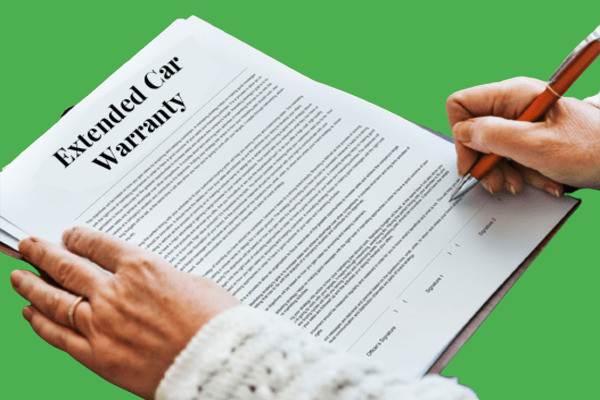
A new car is expensive, and maintaining one may raise the price even further. While basic warranties are offered by car manufacturers, they are only good for roughly three years, or 36,000 miles. If the car needs repairs after this, there may be serious financial hardship. This is where extended car warranties come into play; they prevent you from overspending by helping you pay for repairs.
After the initial warranty expires, extended auto warranties can be helpful. They cover the cost of auto repairs, which is really helpful and prevents you from making large purchases. To make sure these warranties are a good fit for you, it’s important to comprehend the terms and circumstances of these agreements.
Benefits Of Extended Auto Insurance
An extended auto warranty provides peace of mind and safeguards the investment in a car by ensuring that owners can handle unforeseen and frequently expensive maintenance expenditures.
We will explore the benefits of extended car warranties and show how they can be quite helpful to people looking for full coverage for their vehicles.
- Handling Expensive Repairs and High-Tech Features: Modern automobiles employ pricey, sophisticated technologies, which increases the expense of maintenance when these parts go down. For this reason, consumers frequently purchase extended auto warranties in order to cover the high expense of replacing expensive components and features in cars that are prone to breaking down.
- Simplified Payment and Documentation: When auto owners buy warranties from a dealership backed by their vehicle manufacturer, they are expensive but valuable. The car manufacturer pays the dealership, which handles all the paperwork, because the owner has to pay an extra cost.
- Increases Manufacturer’s Warranty Coverage: Extended vehicle warranties go above and beyond the manufacturer’s warranty by taking care of issues that aren’t covered by the initial guarantee. These extra benefits, which are occasionally not included in the manufacturer’s guarantee, include 24-hour roadside assistance, among other things. Furthermore, an extended auto warranty ensures that your automobile will continue to be covered even after the mileage and time limits of your original warranty have expired.
- Stress-Free Car Breakdown: You may not feel at ease when your car breaks down badly because of the financial hardship that follows, the need for immediate repairs, and the possibility of large costs.
Think about getting an extended car warranty to help you relax and avoid these worries. Choosing a warranty supported by the manufacturer adds value since it guarantees the availability of original, model-specific parts, provides more coverage, and lowers the cost of repairs and replacements.
Related: What Does It Mean to Backdate Auto Insurance Policy?
The Drawbacks Of Extended Auto Insurance
Although intended to offer additional financial security, extended car warranties have several disadvantages. Here, we’ll examine and clarify the drawbacks of extended car warranties to assist people in making well-informed choices when thinking about these options for further vehicle coverage.
- Limited Repair Coverage: Consider your options carefully as terms and coverage differ when selecting an extended car warranty. Businesses define what is and is not covered by their inclusions and exclusions. Keep a close eye on the exclusions, which list the parts and components that are not covered. After giving it some thought, select a warranty package that best suits your requirements.
- Warranty May Not Be Used: Warranties are only applicable after damage has manifested. Your car might not be utilized if it hasn’t sustained any damage that is covered by the warranty plan. Only the extended warranty provider makes money during these circumstances.
- High-Cost Potential: The total cost of an extended vehicle warranty is increased by monthly payments and mandatory repair deductibles. Paying deductibles can still cost you money even when the warranty costs less than repair costs.
Moreover, regular maintenance expenses such as tire replacements and oil changes are not covered, which raises the total cost and makes extended car warranties very expensive.
Is an Extended Auto Warranty Necessary?
You should carefully analyze your situation before deciding whether to purchase an extended warranty. An extended warranty may be useful if you take long journeys in your automobile and quickly accumulate a lot of miles on it.
It’s a good idea to get an extended warranty to cover unexpected repair costs if you quickly reach the initial mileage limits, especially if your car is brand-new.
On the other hand, an extended warranty might not be a necessary financial commitment if you drive seldom and expect to have years before hitting the original warranty restrictions, or if you’re okay paying repair costs as they come up and immediate money is not a concern.
Evaluating your driving style and financial situation is essential to figuring out if an extended warranty makes sense.
In summary
In conclusion, your expected usage period, the condition of your automobile, and your financial situation all play a major role in your decision to purchase an extended auto warranty. Even though it might not seem necessary at first, unforeseen circumstances can make an extended warranty worthwhile
Need a warranty for your car?

